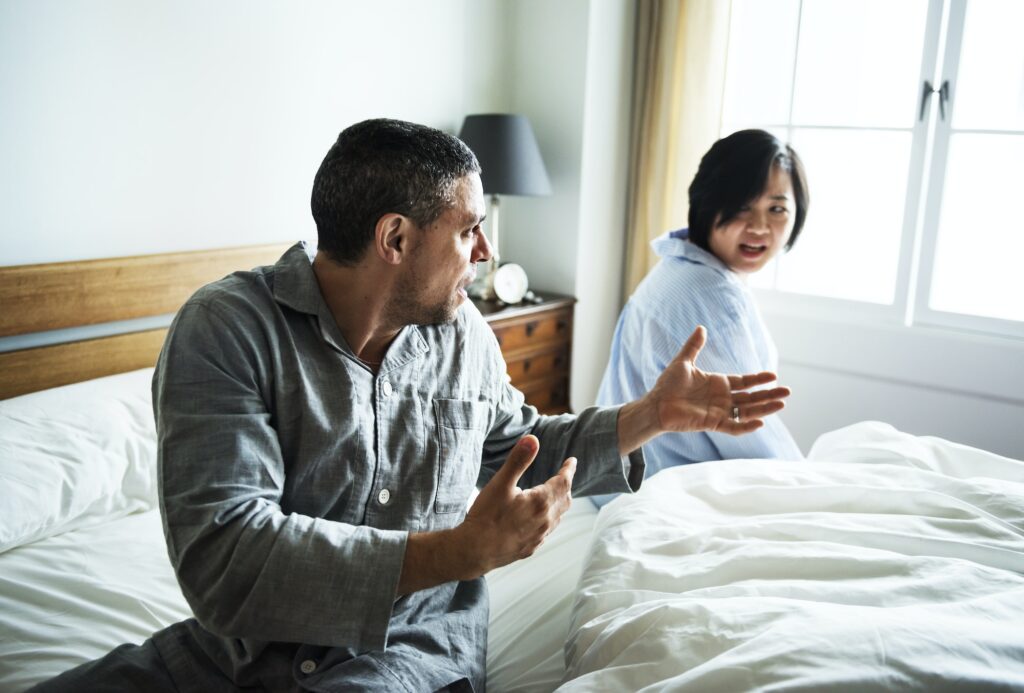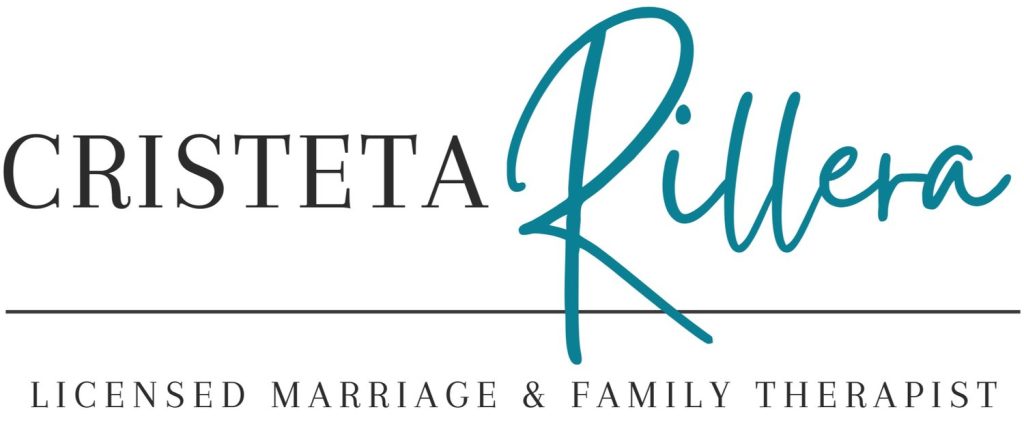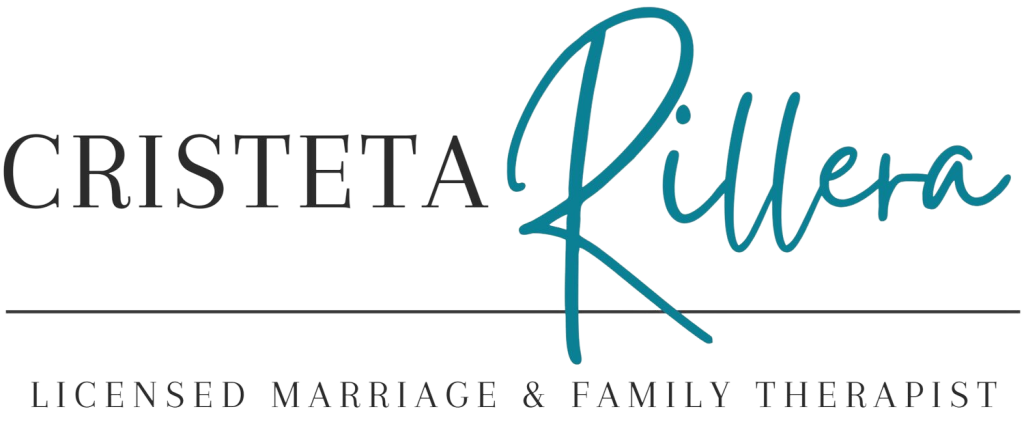Understanding the Impact of Unresolved Conflicts
Conflict is like a mosquito bite – annoying but manageable. It’s not the bite that causes damage but the constant scratching that follows. When we don’t address and resolve conflicts, they become the itch that ruins our relationships, leaving us feeling disrespected, lonely, and neglected.
The Role of Conflict in Relationships
Conflict is like a spicy seasoning in a healthy relationship – it adds flavor and depth. It gives us a chance to express our needs and find compromises. But when conflicts are left to simmer or mishandle, they become a burnt mess.

Consequences of Unprocessed Disagreements
Unresolved issues are like dirty laundry – they pile up and stink. They create resentment and strain our relationships. This emotional baggage can lead to less intimacy and more hostility, turning our love into a battlefield.
Cristeta Rillera, a licensed marriage and family therapist, warns: “Ignoring problems in relationships is like ignoring a leaky faucet – it only gets worse over time.” She advises addressing concerns promptly through open communication before they become relationship floods.
Bypassing confrontation is akin to shirking exercise – it may be comforting in the present, yet detrimental over the long haul. It only allows negative emotions to build up, ready to explode like a volcano during future confrontations. Let’s defuse the tension before it blows.
To prevent relationship disasters, Cristeta suggests tackling potential areas of friction head-on instead of sweeping them under the rug. Doing so allows you to take control and choose healthier strategies to resolve disputes, building stronger bonds with your partner.
The Mask of Unresolved Pain
Conflicts in relationships bring a tsunami of emotions. Suppressing them is like wearing a mask, hiding our true selves, and breeding insecurity. Pain left unchecked can cause a cascade of adverse reactions, from mental distress to physical ailments. It’s time to take off the mask and face the hurt head-on.
Unmask Your Feelings
Recognize your emotions without judgment. It’s a relief to acknowledge what you’re feeling.
Talk It Out
Open up to a trusted partner or seek professional help like Cristeta Rillera. Don’t let difficult conversations scare you.
Take Action
Create an action plan to resolve your pain. Set boundaries, practice self-care, or seek therapy. You’re in control of your healing process.
Understanding the mask of unresolved pain helps build stronger bonds amidst conflict resolution. No more hiding; it’s time to heal.
Processing Regrettable Incidents: Fixing Oopsies and Strengthening Bonds
Learning to process regrettable incidents is like turning lemons into lemonade for your relationship. Discussing our “uh-oh” experiences can help fortify our bond. Who knew?
How Addressing Past Hurts Makes Us Superheroes
Step one: admit that something hurtful went down. No finger-pointing, just acknowledging the emotional ouchie. This opens up a dialogue where both of you feel heard and understood. And guess what? Research says expressing your feelings freely leads to healthier relationships.

Techniques for Handling Oopsies Like a Pro
- Acknowledge the Oopsie: Admit that an event caused discomfort or pain. No blaming; share your feelings about what went down.
- Create a Safe Space: Make sure you feel comfortable sharing your thoughts without fear of judgment. It’s like a cozy blanket for your relationship.
- Show Some Empathy: Reflect on what your partner shared to show you get where they’re coming from. Empathetic listening is the secret sauce for connection, even during tough convos.
So, processing regrettable incidents means both of you need to get in on the action. It takes honesty, empathy, and a willingness to grow together—no need to fret if it seems difficult initially. With practice, you’ll become conflict-navigating pros, creating a healthier dynamic in your relationship. You got this.
Using ‘The Aftermath Of A Fight’ Exercise For Relationship Repair
Conflict is a natural part of any relationship. How we handle it defines the health and longevity of our relationships. Enter the ‘Aftermath Of A Fight’ exercise.
Steps for ‘The Aftermath Of A Fight’ exercise
Step 1: Express feelings without criticism or judgment. No blame game here, just understanding.
Step 2: Validate each other’s experiences. Even if you disagree, acknowledge their feelings.
Step 3: Take ownership of your part in the conflict. Healing and growth await.

Practical examples of using the exercise
During an argument about chores:
- Step 1: One person expresses feeling ignored without blaming their partner.
- Step 2: Their partner validates those feelings, saying, “I understand why you’d feel that way.”
- Step 3: Both admit to not communicating effectively about chores.
This process helps couples navigate disagreements and strengthens emotional bonds by promoting empathy and respect.
‘The Aftermath Of A Fight’ is just one method to repair relationships after conflict. Seeking guidance from licensed therapists like Cristeta Rillera can provide invaluable support toward healthier communication and stronger connections.
Disclosing Your Emotional Triggers
In relationships, conflicts aren’t always about the issue at hand. Deep-seated emotional triggers from our past often fuel them. Discussing the underlying emotions contributing to arguments with your significant other can be a key factor in managing disagreements.
Identifying Personal Emotional Triggers
Resolving conflict starts with identifying the real cause and overreacting to small things. It might be an unresolved wound from your past. Maybe feeling unheard echoes a childhood memory of being overlooked.
Reflect after each argument to understand the source of your anger. This helps both partners navigate future disagreements more effectively.

Communicating About Sensitive Topics
Once you’ve identified your triggers, communicate openly with your partner. It’s not about blaming them but helping them understand why certain behaviors trigger you.
- Honesty: Be open about what upsets you and why.
- Vulnerability: Show vulnerability for intimacy and understanding.
- Precision: Be specific about situations that trigger negative emotions.
- Solution-focused approach: Focus on finding solutions together instead of dwelling on past hurts.
Talking about sensitive topics may feel uncomfortable, but remember: discomfort leads to growth. By disclosing triggers and working together to avoid unnecessary activation, we prevent minor disputes from escalating into major blowouts – paving the way for healthier communication patterns in relationships.
Taking Ownership and Apologizing
When tensions arise in relationships, accepting responsibility for one’s part in the dispute is essential. Taking responsibility for our actions and words is necessary for repairing strained relations.
The Power of Apology in Reconciliation
A sincere apology can heal wounds caused during disputes. It’s not just a matter of uttering the words “I apologize”; it requires comprehending how our behavior affected our companion and vowing to modify it.
- Acknowledge what you did wrong: “I realize now that my comment was hurtful.”
- Show empathy for your partner’s feelings: “I can understand why you felt disrespected.”
- Express regret: “I’m truly sorry for what I said.”
- Pledge better behavior: “Moving forward, I will think before I speak.”

Accepting apologies graciously is equally important. Let go of resentment and be patient and humble in repairing the relationship.
Actions speak louder than words. Show your commitment to making amends by changing your behavior based on feedback from your partner.
Taking ownership and apologizing are crucial for healing after conflict. By acknowledging our faults, expressing genuine remorse, and promising positive change, we create room for forgiveness and strengthen our bonds.
Preventative Planning To Avoid Future Disputes
In any relationship, conflicts are inevitable. We can minimize the drama. How? Through preventative planning, my friend. It’s all about having open convos about potential friction points and making positive requests—no more unnecessary fights.

Strategies Employed Towards Preventive Planning
Step one: identify the common triggers of conflict in your relationship. Money issues? Parenting styles? Annoying habits? Pinpoint them all.
Next, discuss these triggers openly with your partner—no blaming or criticizing folks. We’re here to understand each other and find ways around these pitfalls. Let’s keep the peace.
Ever heard of ‘The Speaker-Listener Technique’? It’s a game-changer. Take turns speaking and listening during heated discussions. It promotes understanding and reduces defensiveness. Genius, right?
But wait, there’s more. Make “positive, actionable requests.” If chores are a constant battle, ask your partner for specific help at specific times. Clear expectations = less resentment. It’s a win-win.
Proactive steps like these take effort, but they’re worth it. They lead to healthier communication and stronger bonds. Trust me; it’s all about that #RelationshipGoals life. Check out HuffPost for more tips on improving communication in relationships.
Remember what Cristeta Rillera said: “A stitch in time saves nine.” So let’s stitch up those relationships before they unravel. You got this.
FAQs
The first step is to allow some cooling-off time after the conflict, so that both parties can reflect on the disagreement without the heat of the moment clouding their judgment. Then, it’s crucial to reach out to the other person, acknowledging the situation and expressing your desire to mend the relationship.
It’s important to express how you feel without blaming the other person. Start with “I” statements, like “I felt hurt when…” Also, showing genuine remorse for your part in the conflict can be helpful. Phrases like “I’m sorry for…” or “I regret…” can demonstrate that you’re taking responsibility for your actions.
Respect their need for space and time. It’s important to let them know that you are willing to wait and work on the relationship when they are ready. Meanwhile, you can work on self-improvement and self-reflection, which could make future discussions more productive.
You cannot force someone to reconcile or repair a relationship if they are not willing. It’s important to respect their decision. In such cases, it can be beneficial to seek support from others and to take care of your own mental and emotional well-being.
Not always, but in some cases, it can be highly beneficial. Professional therapists or counselors can provide objective perspectives, teach effective communication strategies, and guide the process of healing.
Trust rebuilding requires time, consistency, and demonstrated change in behavior. Apologizing for past mistakes, showing understanding of how your actions impacted the other person, and consistently behaving in a way that shows you have changed can help restore trust.
Conflict in a relationship is not always a bad sign; what matters is how it’s handled. If the same conflict repeats, it might mean the root issue wasn’t fully addressed in the first place. It could be beneficial to seek help from a professional, who can facilitate constructive communication and help both parties understand the underlying problems.
Conclusion
Understanding the impact of unresolved conflicts is crucial for repairing relationships after conflict because, let’s face it, ignoring the elephant in the room won’t make it magically disappear.
By recognizing the role of conflict in relationships and acknowledging the consequences of unprocessed disagreements, individuals and couples can begin to address their issues and avoid turning their love life into a never-ending soap opera.
HOW IT WORKS
Ready to get started?
Reach out today and I’ll answer any questions you have, ensuring we’re a good fit. Join me each week to receive the support you need, as together we’ll develop the necessary tools to break free from pain and rediscover joy in life. As you evolve and grow in our sessions, you’ll gain the ability to handle anything life throws at you.
So how can you mend those relationship wounds? Well, it’s all about processing regrettable incidents, using exercises like ‘The Aftermath Of A Fight’ (trust me, it’s not as scary as it sounds), disclosing emotional triggers (no, not the kind that makes you want to throw things), taking ownership and apologizing (yes, even if you think you’re always right), and engaging in preventative planning (because a little foresight can go a long way).
Repairing relationships after conflict requires effort, communication, and a willingness to confront difficult emotions head-on, but nothing worth having comes easy, right?







